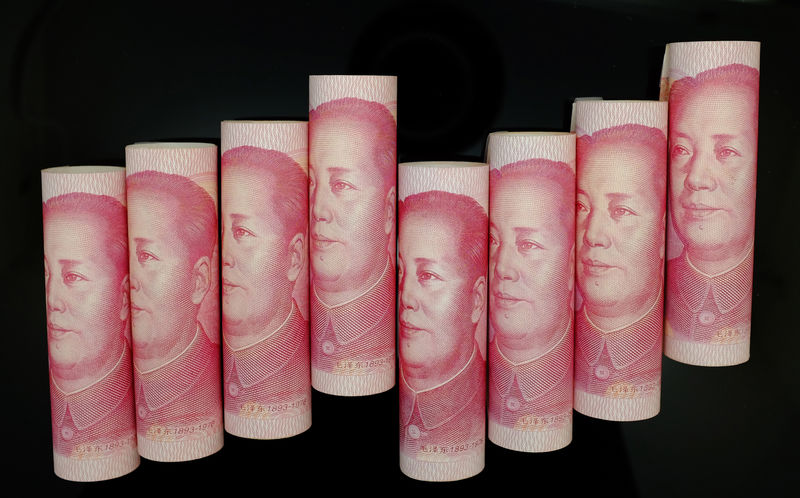By Julia Fioretti
HONG KONG (Reuters) - A surge in junk-rated bonds has made Chinese borrowers more aggressive, with select ones succeeding in cutting their costs for repaying bonds early, a change from standard practice that worries some investors and bankers.
After a tumultuous 2018 in which many borrowers were shut out from the market and yields spiked dramatically over fears of steadily rising U.S. interest rates, the market floodgates have reopened this year.
So far $40.1 billion has been raised in high-yield, or junk bonds, out of Asia, almost as much as the $45.6 billion sold in 2018, Refinitiv data showed, as a now-dovish stance from the U.S. Federal Reserve and a stock market rally have stoked investors' risk appetite. China has accounted for $10.6 billion of this year's issuance.
But efforts by some Chinese borrowers to lower the price they have to pay to call, or redeem, a bond early has some investors and bankers fretting it could set a negative precedent.
Investors do not like bonds to be redeemed early as they expect a steady return from the coupon until maturity.
Market conventions have been for the call price to be equal to the par value of the bond plus half of the coupon on the first call date, decreasing by half afterwards.
If a bond carries a coupon of 6 percent, for example, the issuer would be expected to pay 103 percent of the par value of the bond to redeem it early. Bonds are usually sold at par, or 100 cents on the dollar.
"We would expect at least half the coupon being used as a way to compensate the bondholder for being called," said Stephen Chang, Hong Kong-based executive vice president and portfolio manager at Pimco.
"We like to negotiate better terms for that, but there is quite strong demand out there with the inflows happening and other investors might be keen to put money to work quickly via new deals."
REDEMPTION TERMS
Chinese property developer KWG Group Holdings Ltd issued a 4.5-year bond in February with a coupon of 7.875 percent, which could be called after 2.5 years for 102 percent of par value.
Under normal market practice, KWG would have had to pay almost 104 percent of par value to redeem it early.
Asked about the pricing, KWG said it was market-driven.
"It shouldn't be anything special and we have no further comments on this."
Times China Holdings, also in property development, is another borrower that got better terms for potential early repayment. It sold a three-year bond with a coupon of 7.625 percent that could be redeemed after two years at just 101 percent of par value.
The company did not respond to a request for comment.
While it is natural for borrowers to try to extract more favorable terms when there's hefty demand to buy bonds, bankers say the lowering of call prices is a newer development.
"Issuers are getting cheeky," said a senior debt capital markets banker. "If there's a market for it, they are going to take it."
Aside from halting lenders' steady return from the coupon, redeeming a bond also limits its upside as it will not trade above the call price closer to the call date.
"You've seen this (call premium) reduce significantly," said Michael Dennis, Asia Pacific head of global capital markets for BlackRock (NYSE:BLK), adding that it has become more selective in the last quarter about what bonds it buys.
Some bankers shrug off the phenomenon as part of changing market demand, and say issuers redeeming bonds early enables them to manage their liability profile. Issuers may want to buy back bonds early because they expect to be able to sell new ones at a lower coupon.

Securing bonds that cut costs for early repayment are "isolated commercial decisions that frankly are fairly transparent and investors can decide whether they take or not," said Jason Elder, partner at law firm Mayer Brown.